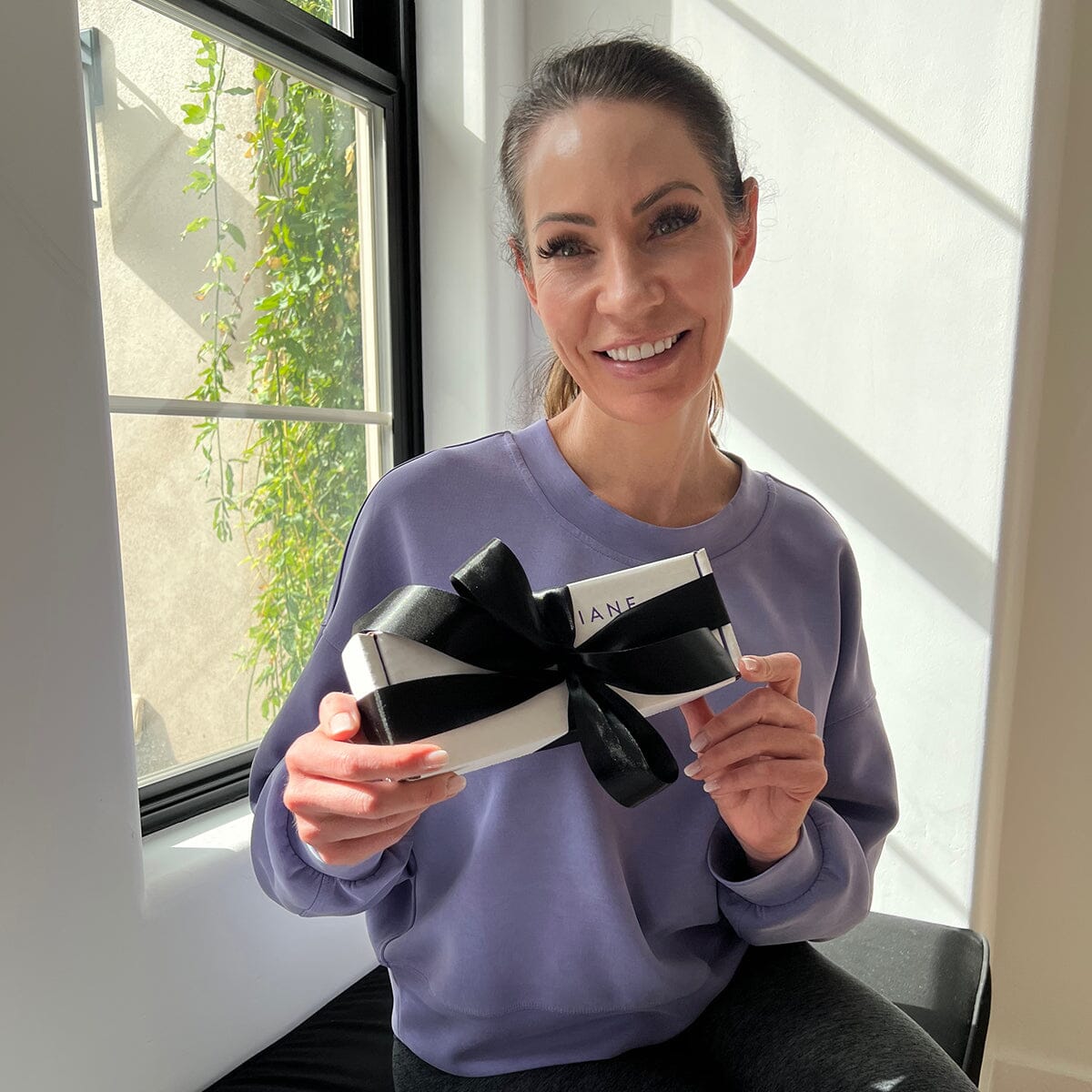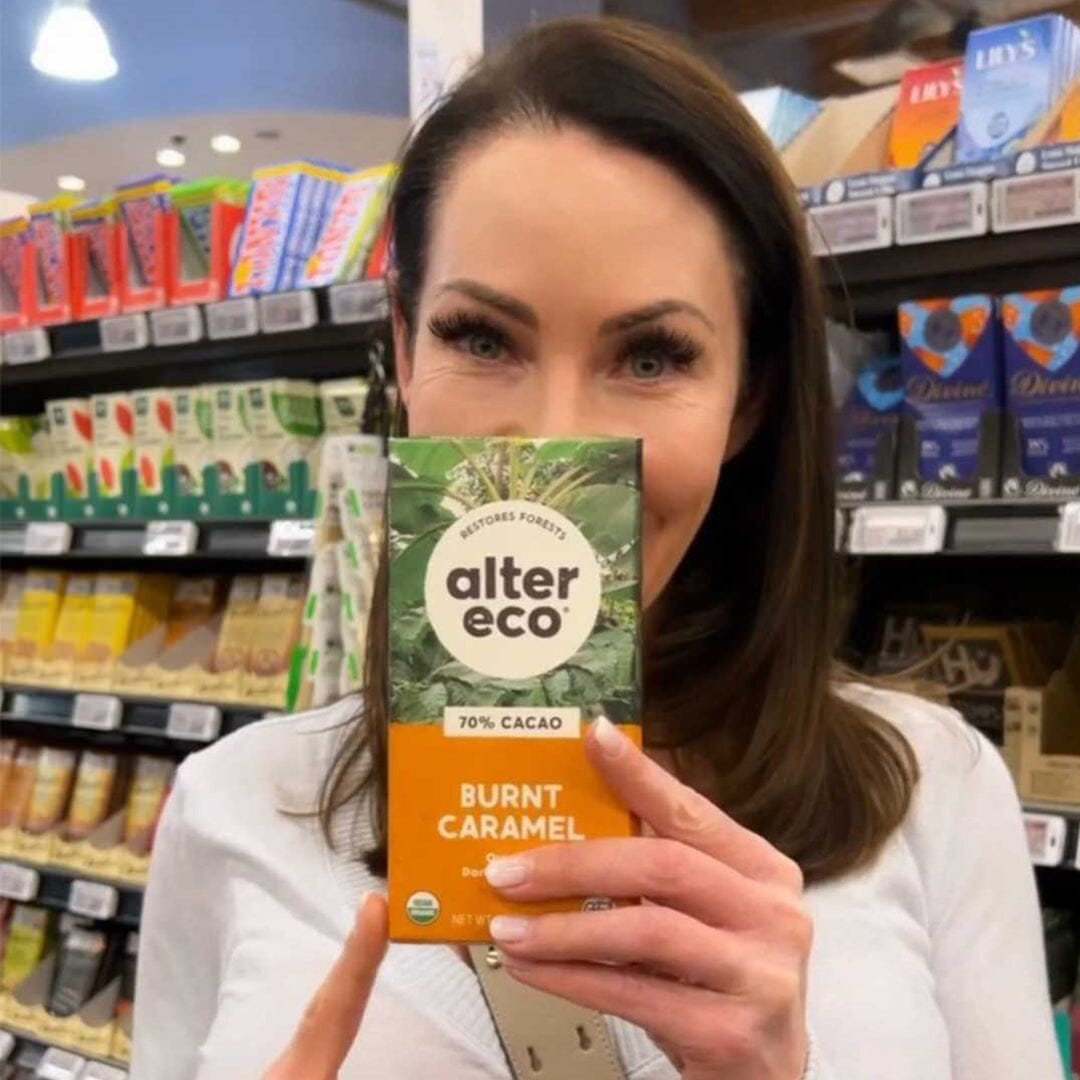The Shield Your Skin Needs: Understand + Strengthen Your Skin’s Moisture Barrier
by Emily Linehan on September 22, 2023
As an esthetician, I often find that clients come to me with a variety of skin issues - from sudden breakouts to an uncomfortable feeling of tightness or dryness in their skin. Many of these issues can be traced back to one key player in skin health - the skin's moisture barrier.
The term "damaged moisture barrier" might have caught your eye on social media, as people have been dishing out all kinds of skincare tips and trends like "slugging". And while it’s great that we’re gaining more awareness about damaged moisture barriers, I think it’s equally as important to truly understand what we’re talking about here.
So let's take a deep dive into understanding what the skin moisture barrier is, why it's significant, and to tell if it’s damaged, and ways to repair and maintain it.
What is the Skin Moisture Barrier?
Also known as the stratum corneum, the skin moisture barrier is the outermost layer of your skin. It's a thin but mighty force field that protects your skin from environmental aggressors such as pollution, UV rays, and irritants. It plays a pivotal role in maintaining your skin's overall health and appearance.
Imagine a tightly packed wall of skin cells held together by a 'glue' made of lipids (fats) like ceramides, cholesterol, and fatty acids. This lipid layer acts as a water-locking agent, trapping the skin's natural moisture to prevent it from vanishing into thin air (a.k.a., Transepidermal Water Loss or TEWL). Plus, it helps maintain our skin's slightly acidic pH balance.
The Importance of the Skin Moisture Barrier
The skin moisture barrier's primary role is to prevent water loss from the skin and keep out harmful microbes, pollutants, and chemicals. But its job doesn't end there. It also plays a significant role in skin appearance, texture, and health.
- Hydration: By preventing TEWL, the barrier keeps our skin plump, elastic, and well-hydrated.
- Protection: It defends the deeper layers of skin from harmful environmental factors and potential irritants.
- Regulation: It helps regulate our skin's pH balance, keeping it slightly acidic for optimal function.
Signs of a Damaged Skin Moisture Barrier
When this barrier is healthy, your skin feels smooth, clear, and plump. But when it's damaged, your skin might become:
- Dry or Dehydrated: One of the first signs of a damaged barrier is unusually dry or dehydrated skin, because the barrier is unable to retain moisture effectively.
- Sensitive: You might notice your skin become red, inflamed, itchy, or irritated.
- Rough or Uneven: Your skin may look dull, feel rough to the touch, or have an uneven texture.
- Prone to Breakouts: A weakened barrier can allow bacteria and other impurities to infiltrate the skin, leading to acne and other types of inflammation.
These symptoms are increasingly being recognized and discussed on social media platforms, leading to more awareness about the vital role the moisture barrier plays in skin health. This has also led to increased buzz regarding ways to repair a damaged moisture barrier, like “slugging”, which we’ll discuss more in a bit.
What Causes a Damaged Skin Moisture Barrier
We've talked about the skin moisture barrier and how to spot when it’s struggling, but what causes a damaged moisture barrier? Several external and internal factors can weaken the skin barrier, such as:
- Harsh Skincare Products: Overdoing it with skincare products that are too potent or don't suit your skin can strip away its natural oils, damaging the moisture barrier. Soaps, detergents, and alcohol-based products are the usual suspects.
- Over-Exfoliation: While exfoliation can be beneficial, doing it too often or too aggressively can weaken your moisture barrier.
- Environmental Factors: Climate changes, like harsh winter winds or dry desert air, can impact your moisture barrier. Similarly, indoor heating and air conditioning can reduce the air's humidity and dry out your skin.
- Sun Damage: Overexposure to UV rays breaks down collagen and elastin in your skin and can harm your moisture barrier.
- Aging: As we age, our skin naturally produces fewer lipids, which can weaken the moisture barrier over time.
- Sweaty Skin: Breaking a sweat can be great for your skin, but hanging out in sweaty skin after a workout is not. This is because the salts from the sweat rapidly draw out moisture from the skin.
Can “Slugging” Solve Moisture Barrier Concerns?
"Slugging," a term that has taken social media by storm, is a K-beauty inspired trend that involves applying a thick layer of petroleum jelly (like Vaseline) over your skincare routine at night to lock in moisture. It’s called slugging because it leaves your face looking shiny and slimy, like a slug. The intention is to seal in all the moisture from the products underneath, emulating and supporting the natural function of the skin’s moisture barrier.
While slugging can be beneficial for those with extremely dry skin or a damaged moisture barrier, it’s not a one-size-fits-all solution. It's also not a technique that I would suggest making a regular part of your skincare routine. You can learn more about slugging to repair a damaged moisture barrier here, but if you are considering trying this technique (or any skincare trend, for that matter), I urge you to do a quick online check-in with me first to ensure it is right for your skin and get the how-tos.
Repairing and Maintaining Your Skin's Moisture Barrier
Slugging can be a handy quick fix, but it's not the only way (or even the best way) to heal your moisture barrier. And beyond repairing, we also need to focus on maintaining our skin's moisture barrier to prevent future damage. That means treating your skin kindly and having a little patience.
In addition to avoiding moisture barrier damaging factors, here are some tips to help nurse your moisture barrier back to health and keep it thriving:
- Choose Gentle, pH-Balanced Cleansers: Steer clear of harsh soaps or detergents that strip your skin of its natural oils. My recommendation is our nourishing and hydrating Gentle Cleanser.
- Avoid Washing Your Face with Hot Water: Once thoroughly cleansed, you’ll want to rinse your face with lukewarm water. Water that is too hot can damage the skin or lead to dryness, while water that is too cold can result in your pores tightening up and potentially trapping unwanted debris.
- Moisturize, Moisturize, Moisturize: Look for moisturizers with ceramides, cholesterol, and fatty acids to support your barrier's lipid matrix. A great option is our new Barrier Balance Cream, which is specially formulated to improve and support the skin's barrier function.
- Use Hydrating Serums: Reach for products with humectants like hyaluronic acid and glycerin to amp up your skin's hydration. Our best-selling Skin Quencher Gel is a hit among our clients, who call it a “big drink of water for the skin”.
- Avoid Over-Exfoliation: Gentle exfoliation is key, and make sure to give your skin some downtime between sessions. Our Skin Smoothing Polish is an option that’s gentle enough to use daily and suits all skin types.
- Protect from Sun Damage: Always wear a broad-spectrum sunscreen, as UV rays can harm the skin barrier.
- Don’t Allow Your Skin to Air Dry: After you begin the cleansing process, move quickly to the next step in your routine. Do not allow your skin to air dry as this will cause it to dehydrate quickly.
- Allow Skin Time to Acclimate: If you are introducing a new product, it’s important to give the skin enough time to acclimate. This is where a “skin cycling” approach, or one of my alternative methods to skin cycling, can be really helpful.
Our skin's moisture barrier is often overlooked, but it is pivotal for maintaining skin health. With the right skincare routine and lifestyle adjustments, we can help protect, repair, and maintain this essential barrier, leading to radiant, youthful-looking skin. So, the next time you think about your skin health, remember to give a little love to your skin's very own bodyguard - the moisture barrier.
xoxo,
Emme


